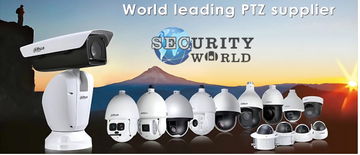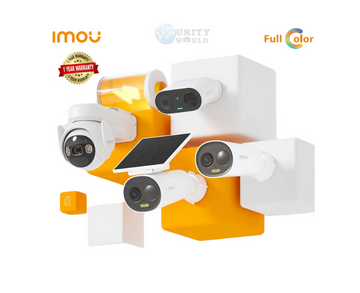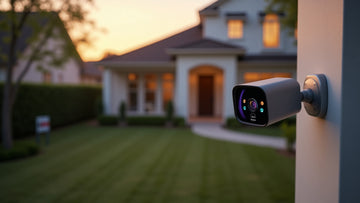Choosing the Right CCTV Camera for Your Home or Business
In today’s world, security is paramount, and having the right CCTV camera can make all the difference in protecting your home or business. With so many options available, selecting the best camera to suit your needs can be challenging. This blog will guide you through the essential factors to consider when choosing the perfect CCTV camera for your premises.
Understanding Your Needs

Before investing in a CCTV system, it’s crucial to assess your specific security requirements. The needs for home security can be quite different from those of a business. For your home, consider areas such as entry points (doors and windows), driveways, garages, and any blind spots around your property. Think about whether you need indoor surveillance for common areas or if outdoor cameras will suffice to monitor the perimeter.
For business security, the requirements are often more extensive. You may need to monitor entrances and exits, cashier areas, storage rooms, and customer-facing spaces. Additionally, consider the need for coverage during both day and night, which may necessitate cameras with night vision capabilities. Assess whether remote monitoring is essential for your setup, allowing you to keep an eye on your property from anywhere.
Home Security Considerations:
- Entry Points: Monitor doors and windows to prevent unauthorized access.
- Outdoor Surveillance: Use weatherproof cameras to cover driveways, garages, and yard areas.
- Indoor Monitoring: Keep an eye on common areas such as living rooms and hallways.
Business Security Considerations:
- Entrances and Exits: Ensure all entry and exit points are covered to track everyone coming in and out.
- Critical Areas: Monitor areas like cash registers, stockrooms, and high-traffic areas.
- 24/7 Monitoring: Utilize cameras with night vision to secure your business around the clock.
Identifying these specific needs will help you choose the right type of CCTV cameras and features, ensuring that your security system is tailored to provide the best protection for your particular situation. Keywords to consider when researching the best solutions include “home security cameras,” “business surveillance systems,” “outdoor security cameras,” and “night vision CCTV cameras.”
Types of CCTV Cameras

When it comes to choosing the right CCTV camera for your security needs, understanding the different types available is essential. Here’s a detailed look at the most popular types of CCTV cameras: IP cameras, HD cameras, and Wi-Fi cameras.
1. IP Cameras
- High Resolution: IP cameras offer high-definition video quality, ranging from 720p to 4K, ensuring clear and detailed footage.
- Remote Access: These cameras can be accessed remotely via the internet, allowing you to monitor your property from anywhere.
- Advanced Features: IP cameras often come with features like digital zoom, motion detection, and video analytics.
Pros:
- Superior image quality.
- Remote monitoring capabilities.
- Easy integration with other security systems.
Cons:
- Higher upfront cost.
- Requires a reliable network connection.
2. HD Cameras
- Clear Imaging: HD cameras provide high-definition video, typically in 720p or 1080p, offering clear and detailed images.
- Cost-Effective: These cameras are generally more affordable than IP cameras and are a good option for those on a budget.
- Wide Availability: HD cameras are widely available and come in various models to suit different needs.
Pros:
- High-definition video quality.
- More affordable than IP cameras.
- Easy to install and use.
Cons:
- Limited advanced features compared to IP cameras.
- May require more storage space for high-definition footage.
3. Wi-Fi Cameras
- Wireless Convenience: Wi-Fi cameras connect to your network wirelessly, making installation easy and flexible.
- Remote Viewing: These cameras can be accessed remotely through smartphone apps, allowing you to check in from anywhere.
- User-Friendly: Wi-Fi cameras are typically designed for easy setup and use, ideal for home security.
Pros:
- Easy to install and set up.
- Flexible placement options.
- Remote access via mobile apps.
Cons:
- Dependent on Wi-Fi signal strength.
- Potential security vulnerabilities if not properly secured.
Installation and Maintenance
Proper installation and regular maintenance are crucial to ensure that your CCTV system operates efficiently and provides optimal security. Whether you choose to install the system yourself or hire a professional, understanding the installation process and maintenance requirements will help you get the most out of your security cameras.
DIY vs. Professional Installation
1. DIY Installation:
- Ease and Convenience: Many modern security cameras, especially Wi-Fi cameras, are designed for easy DIY installation. They often come with detailed instructions and mounting hardware.
- Cost-Effective: Installing the cameras yourself can save on labor costs. This is a great option for those who are handy with basic tools and technology.
- Cost savings on installation fees.
- Immediate setup without waiting for professional scheduling.
Cons:
- May require a basic understanding of networking and mounting techniques.
- Potential for improper installation if instructions are not followed correctly.
2. Professional Installation:
- Expertise: Professional installers have the experience and knowledge to set up your system correctly, ensuring optimal camera placement and system configuration.
- Comprehensive Service: They can handle complex installations, including running cables, configuring network settings, and integrating the system with existing security measures.
Pros:
- Ensures proper setup and optimal performance.
- Professionals can provide advice on the best camera placements and configurations.
Cons:
- Higher upfront costs due to labor fees.
- Scheduling and availability may cause delays in setup.
Regular Maintenance
- Cleaning and Inspection: Regularly clean the camera lenses and inspect the system for any signs of wear or damage. This helps maintain clear video quality and ensures the system is functioning correctly.
- Firmware Updates: Keep your cameras’ firmware up to date to benefit from the latest features and security enhancements. Manufacturers often release updates that improve performance and fix vulnerabilities.
- Storage Management: Ensure that your video storage system, whether it’s local DVR/NVR or cloud-based, has enough capacity and is functioning properly. Regularly check and manage storage to prevent data loss.
Pros:
- Prolongs the life of your security system.
- Ensures optimal performance and reliability.
Cons:
- Requires regular attention and effort.
- Potential costs for replacement parts or professional maintenance services.
Conclusion
Whether you opt for a DIY approach or hire professionals, understanding the installation and maintenance requirements of your CCTV system is vital for effective security. Proper installation ensures that your cameras are positioned for optimal coverage and performance, reducing blind spots and enhancing the overall security of your property.
Maintenance plays a crucial role in the longevity and reliability of your CCTV system. Regular upkeep, including cleaning the camera lenses to ensure clear images, updating the firmware to protect against vulnerabilities, and managing storage to prevent data loss, will ensure that your system remains reliable. Periodic checks and adjustments can help maintain optimal functionality and address any potential issues before they become significant problems.
Moreover, it's important to stay informed about advancements in CCTV technology. Upgrading your system when necessary can provide you with better features, improved image quality, and enhanced security capabilities. By committing to regular maintenance and staying updated on technological advancements, you can ensure that your CCTV system provides the best protection for your property, offering peace of mind and a safer environment for you and your loved ones.






